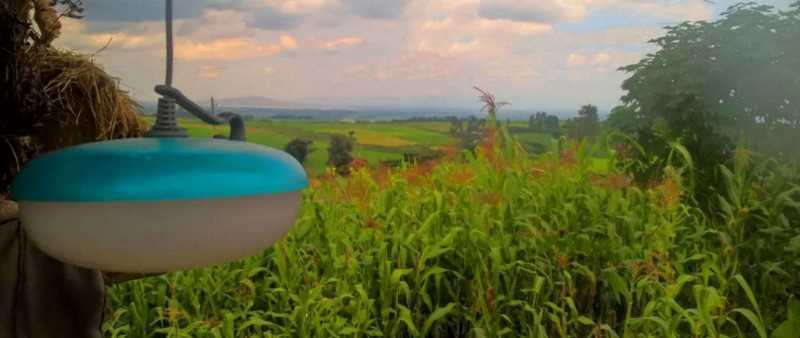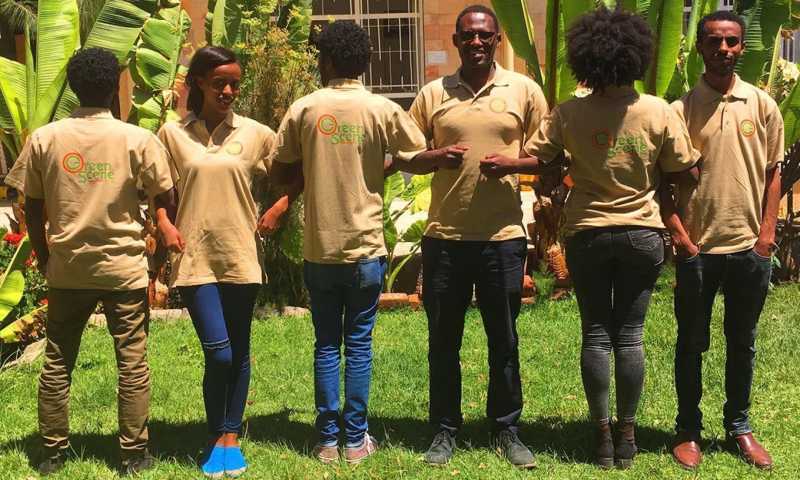Green Scene Energy - Transforming the lives of low-income, off-grid households

In a country where about 70 million people live without access to electricity, Rekik Bekele has made it her mission to help solve this issue by offering an alternative energy system.
‘Living in Addis, we often complain when the power goes out for a bit; they had no electricity!’
In a country where about 70 million people live without access to electricity, Rekik Bekele has made it her mission to help solve this issue by offering an alternative energy system. Rekik is the co-founder and CEO of Green Scene Energy, an Ethiopian company that provides affordable and high-quality solar energy to off-grid communities in rural Ethiopia. Loline had a conversation with Rekik to learn more about her company.
After graduating from Addis Ababa University with an electrical engineering degree, Rekik went on to work in multiple electric power organizations before launching Green Scene. Most of these jobs required field trips that allowed her to see the living situation of people in rural areas. When explaining the living situations she witnessed in Mizan Tepi and Bonga, towns located in southwest Ethiopia, Rekik says,
‘Living in Addis, we often complain when the power goes out for a bit; they had no electricity! The residents used kerosene lamps; some hospital employees even used their cell phone flashlights to perform procedures.’
She continues, ‘One night, a labouring mother got rushed into the hospital, and I got to see first-hand the chaos to find a phone flashlight to attend to this woman.’ Adding to that, a few years later, in West Gojam, where she was creating awareness about solar energy, she heard of a woman who lost her child in a fire after leaving her kerosene lamp on for a prolonged time. All these experiences summed up and shaped Rekik’s outlook towards electric power and pushed her to make it more than just a job; Rekik had found her calling.

‘Although the progress was good and we had electrified a considerable amount of places, the sector was still lacking. About 70 million people still did not have the access they needed, and I saw potential in this. I saw that the sector was large and relatively untapped and that I could contribute a lot more if I started my own company.’ As she already had some exposure to entrepreneurship, this new venture was easy for her. Green Scene was born.
Founded in 2016, Green Scene aims to empower Ethiopian off-grid communities with solar system solutions to fuel their everyday life. Although the focus is mainly on off-grid areas, they also provide backup systems for offices and households in urban areas. The company currently has 11 employees and plans to scale up to more than 2000 head office and field staff in the following five years.
About the name Green Scene Energy, Rekik says, ‘We chose the name Green Scenebecause we believe in seeing everything in a greener, cleaner perspective. Having a green perspective on energy will help us overcome climate change and promote good habits.’

‘People in rural communities have to travel 5 to 10 kilometres to charge their phones, and they only get to do it every 2 weeks or so. In doing this, they waste so much time and money. Our company provides an alternative,’ Rekik told Loline. ‘We have also found a way to make it more affordable for them by allowing them to pay in instalments instead of the full amount at once. We essentially created a system to pre-finance our customers. Moreover, our partnership with Ethio Telecom will allow us to reach more people across Ethiopia.’ This alternative, Rekik believes, has helped make these solutions accessible and will enable a seamless transition to solar power systems.
As the company works in off-grid and rural areas, it is often difficult to persuade individuals to change their normal behaviour and pick solar energy systems. When this issue arises, Rekik explained ‘Once we adequately inform the community of how our products work and how they could impact their lives, we install the solar power system at one person’s house and come back after 15 days. When we return, the people will have already been swayed by what they saw at their neighbour’s house and will want to switch to our products.’
One of the trials the company continues to face is the competition with substandard, low-quality products found all over the market. ‘Seventy percent of all solar-powered products imported into the country are cheap, low quality, and uncertified. These solar products are imported through contraband and offer a very cheap alternative to ours. They malfunction in a few months and have caused the people to lose faith in solar-powered products. Convincing them is thus very challenging’.
Arguably, the most important thing in such undertakings is the need for funds. Rekik, when asked about challenges Green Scene has faced, stressed the lack of capital and the continued need for investors. The company has big plans for the country and needs proper funding.
Loline asked if there were any policy changes that Rekik hoped to happen for Green Scene to succeed. She answered, ‘As a local company, it has proved to be very difficult to gather funds/investments as retail is not permitted for foreign companies. When we do get the required funds, we can only acquire them in our local currency. Import trade, another challenge, is restricted to foreign companies, which forces us to venture into manufacturing, which has its own set of headaches. Although all this is done for the sake of supporting local businesses, which I understand and stand behind, there needs to be some kind of balance that will allow us to succeed.’

The Ethiopian government has planned to electrify the entire country by 2025; Green Scene intends to reach 10% of the 14 million households (600,000 households) the government has put into its plan. When asked where Rekik saw Green Scene in 5 years, she responded,
‘In 5 years, provided everything goes to plan, we hope to move away from home solar systems and take big mega projects to supply the government with solar energy.’
You can check out their website, and social media accounts through LinkedIn, Instagram, Facebook, Twitter, and YouTube.
